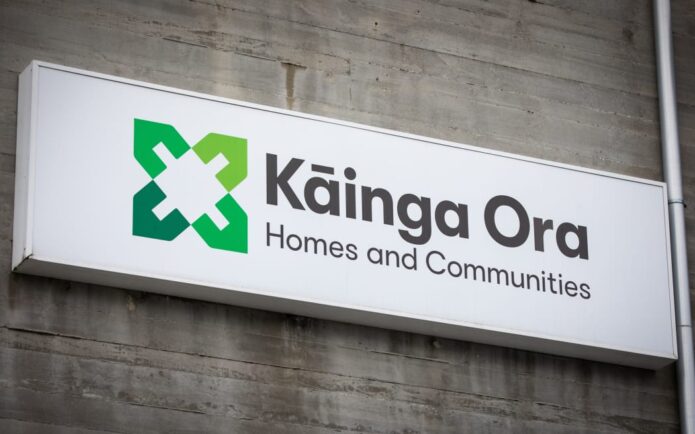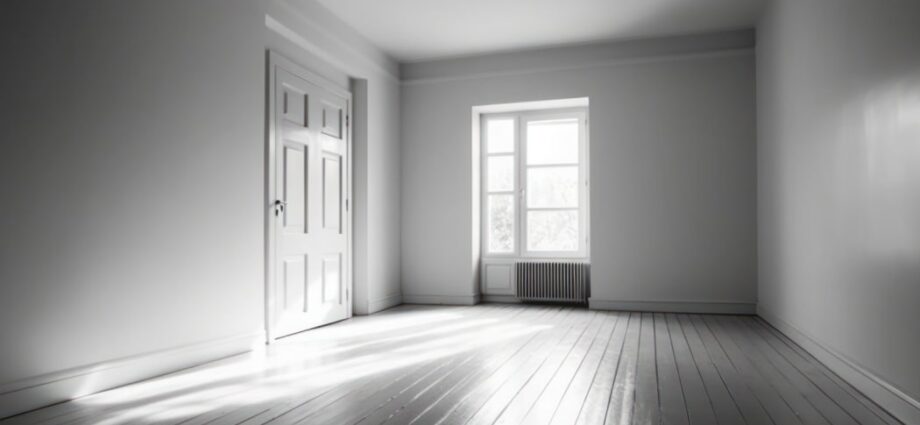PHOTO: Around 5 percent of New Zealand’s housing stock were empty at the time of the 2018 census. Photo: 123RF
The New Zealand property market, contributing a significant NZ$41.2 billion annually to the gross domestic product, remains a focal point of discussion, particularly in the context of the ongoing housing crisis. The debate centers on how we should levy taxes on homes, especially those that remain unoccupied while the housing shortage persists.
HOUSING CRISIS: Becoming a real estate agent is no longer a popular choice
Housing affordability continues to be a pressing concern for both renters and homeowners. Last year, a startling statistic revealed that one in four rental households spent over 40 percent of their disposable income on housing expenses, compared to one in five households with mortgages.
Despite this, a comprehensive capital gains tax has been ruled out by both major political parties. While the bright-line rule mandates income tax payment on property profits within ten years of purchase, this primarily applies to house sales. The question then arises about vacant investment properties held for speculative purposes.
In my upcoming research, I delve into the feasibility of imposing taxes on vacant homes, uncovering a potential source of substantial government revenue.
Vacant Homes Amidst a Housing Shortage The 2018 census revealed that approximately 5 percent of New Zealand’s housing stock, totaling 95,000 dwellings, were considered vacant. According to the “Empty Homes Report” of March 2022, around 10 percent of these empty homes were intentionally unoccupied, while 35 percent served as holiday homes. An additional 8 percent remained empty for personal use, often as second homes, while 23 percent underwent renovations and repairs. Approximately 17 percent remained vacant rentals, sometimes due to non-compliance with Healthy Homes Standards, and the remaining 6 percent sat empty for various reasons, often awaiting sale.
Pool business leaves former All Black TJ Perenara $40k out of pocket | WATCH
The extent to which New Zealand’s housing stock is owned by overseas-based investors remains unclear after rule changes in 2018 aimed at restricting foreign ownership. However, the National Party has pledged to permit foreign buyers back into the property market, albeit with restrictions.
Introducing an Empty Homes Tax My research underscores the underutilization of property taxes by the New Zealand government. In the financial year 2021-22, property taxes contributed only 4.7 percent of the total tax revenue, falling below the OECD average of 5.7 percent. Yet, New Zealand presents fertile ground for implementing an empty house tax, which would directly affect property investors and those with multiple property holdings.
An empty house tax would target property owners who leave a residence vacant for an extended period. This concept is not novel and exists in several other countries. New Zealand possesses the necessary infrastructure, including an existing land registry, to efficiently implement such a tax without relying on self-reporting by homeowners.
Sofia Vergara owns her and Joe Manganiello’s entire $44M property empire | WATCH
A Potential Boost for Government Revenue Empty house taxes have proven to be a revenue source for governments in various cities and countries worldwide. For instance, in Paris, France, vacant properties face an annual surcharge of 160 percent of the standard property rates. In Vancouver, Canada, vacant homes are taxed at 3 percent of the property’s taxable value, with fines for non-compliance. In Ireland, the empty house tax is three times the property’s existing base local property tax. Melbourne and Sydney impose an annual charge of at least A$5500 (NZ$5978) on property buyers who leave their residences unused for six months.
These countries’ experiences indicate that high tax rates and penalties encourage investors to redirect their capital towards more productive sectors of the economy, a point emphasized by policymakers in Vancouver and other regions where such taxes have been implemented. Following the Vancouver model, an empty homes tax in Queenstown could potentially yield NZ$255 million annually.
Time for Serious Consideration New Zealand has two potential paths to consider when introducing an empty home tax. The first option is to impose a tax ranging from 200 percent to 300 percent of property rates, akin to Ireland’s approach. Alternatively, a tax could be introduced at 3-5 percent of land value, mirroring Vancouver’s model. This tax could be customized for different cities and regions, with higher charges for empty homes in cities like Queenstown and Auckland.
Exemptions could apply to residential and rental properties, with the exception of holiday homes unless they are primarily used for platforms like Airbnb. Individuals compelled to leave their primary residences for extended periods due to work commitments could also be exempt from the empty home tax. To ensure the success of this tax, robust measures for monitoring compliance would be essential.
The revenue generated from an empty house tax could be channeled into the construction of new homes. Currently, property investors benefit from the absence of an empty house tax, as vacant properties continue to appreciate in value, even without rental income. Conversely, implementing an empty house tax would discourage land speculation, potentially prompting property owners to enter the rental market, a shift that could enhance rental affordability.













